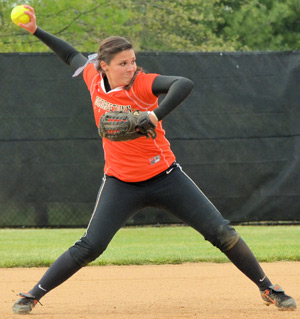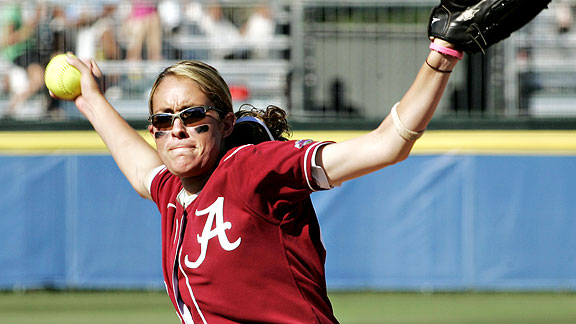Pitching Speeds
 (1) Average pitching speed by age varies substantially from region to region. Warm weather states in the U.S. (southern California, Arizona, Texas, Florida, etc.) offer athletes the opportunity to practice and play their sport outdoors the year around. Therefore, we have seen consistently that average pitchers in those areas have faster average speeds than their counterparts in colder weather regions.
(1) Average pitching speed by age varies substantially from region to region. Warm weather states in the U.S. (southern California, Arizona, Texas, Florida, etc.) offer athletes the opportunity to practice and play their sport outdoors the year around. Therefore, we have seen consistently that average pitchers in those areas have faster average speeds than their counterparts in colder weather regions.
(2) Pitchers, pitching coaches, and parents all like to brag about their pitcher's "60 mph fast ball". It is a nice goal,
but obviously speed alone doesn't make a successful pitcher. Here is an unpopular statement from me, but the truth nonetheless: In most cities, considerably less than 5% (and sometimes only 1% or 2%) of all teenage pitchers consistently hit an "honest" 60 mph in games.
(3) Radar guns and other speed measuring devices vary CONSIDERABLY in accuracy. An $800 Jugs speed gun is accurate to within ½ of a mile per hour. But obviously, a $20 softball with an LCD speed readout, or a bucket that measures speed, or an $89 radar gun...none of those should be expected to be close that kind of accuracy.
(4) Some pitchers tighten up and slow down when they see a radar gun. It is natural to think that "I have to pitch harder" when she sees a speed gun behind the catcher. "Trying" to throw hard often means tighter muscles and slower pitching. Relax!
(5) Pitch speed MIGHT be slightly slower when there is a batter at the plate. The majority of pitchers tend to be more conservative in a game than in practice...practice pitches are often faster than in a game situation.

